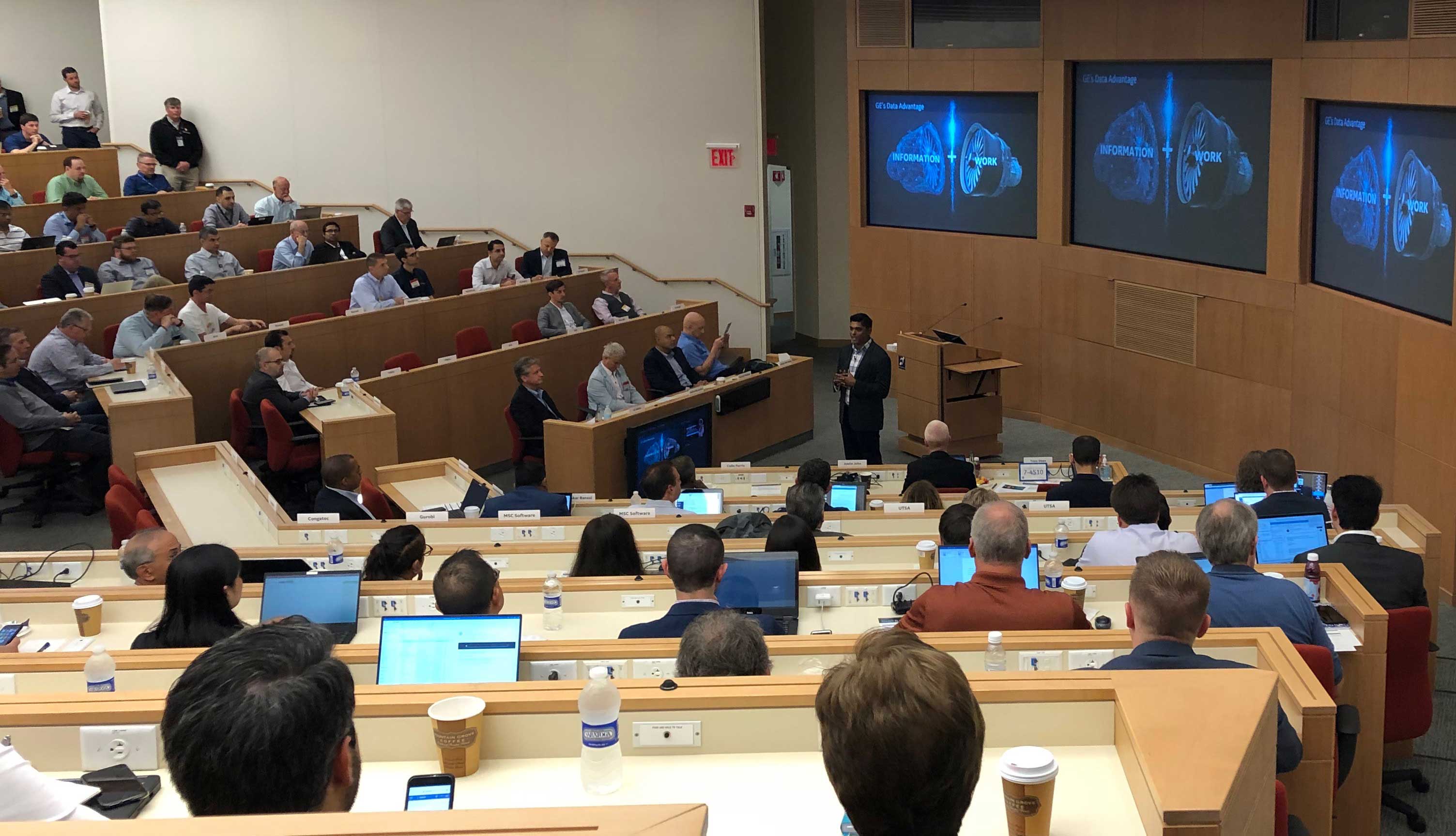- GE scientists partnering with GE Aviation’s Avionic Systems, Dartmouth College and Xilinx to build the MIND – Monitoring & INspection Device to enable seamless, secure communications between different security domains
- MIND will provide high speed real-time data transfer across a wide variety of communication protocols, while enforcing information security policies across multiple security domains
- Will have capacity to achieve data transfer speeds of up to 100 gigabits/second, or 300X faster than the typical Wi-Fi speeds consumers have through their mobile devices
NISKAYUNA NY – Wednesday, September 11, 2019 – With the management of modern military operations and critical infrastructure increasingly happening across a network of systems, the importance of tracking and securing communications between systems has become even greater. GE scientists have been awarded four-and-half year, $8.6 million project through DARPA’s (Defense Advanced Research Projects Agency) GAPS (Guaranteed Architecture for Physical Security) to create the MIND.
The MIND is a hardware solution that would serve as a secure gateway to relay communications with formally proven separation between different security domains. News of the project was announced during GE Research’s annual Edge & Controls Symposium, which is bringing together 375 top thought leaders from industry, government and academia to discuss the future of Edge computing and controls technologies. This year’s theme is “Securing and Optimizing Industrial Assets,” featuring the latest advances and applications from GE and others in cybersecurity, controls & optimization, additive manufacturing, Edge computing and trusted autonomy.
“Today, the management of everything from US military operations to critical infrastructure such as power generation, energy transmission & distribution, healthcare devices, and aviation is increasingly happening through connected networks of highly secured and isolated systems,” said Bill Smith, Principal Engineer and project leader of GE Research’s DARPA GAPS project. “Our project team is proud to be partnering with DARPA through their GAPS program to support next generation technology advancements that enhance both the capabilities of these systems and the security required to protect them.”
“GE’s MIND will allow closing and automating the communication gaps from one system to another in a given network,” Smith added. “But more than that, we want to deliver a solution that supports much higher bandwidths and the lowest latency in communication transmissions while enforcing applicable security policies.”
“System security is a complex challenge that covers multiple technical disciplines and areas of focus based upon the known and unknown future threats to a system which are influenced by the sophistication of adversaries as well as the environment where the system is deployed,” says David Gamba, Senior Director, Aerospace and Defense, Xilinx. “Xilinx is a leader in device security and is very pleased to collaborate with DARPA, GE, GE Aviation’s Avionic Systems and Dartmouth on the GAPS program to contribute to the next generation security capabilities for enhanced protection of systems.”
Sean Smith, Professor of Computer Science at the University of Dartmouth said, “The innovative combination of formal language theory with software engineering has proven effective in preventing vulnerabilities, and we're excited to be partnering with GE and Xilinx on bringing these techniques into new spaces.”
MIND will utilize commercial avionics (aviation-grade) hardware developed by GE Aviation’s Avionics Systems as a testbed for the new platform. Dartmouth College, which is renowned for its expertise in language-theoretic security, will integrate these capabilities to define and enforce security policies on the communication protocols between different security domains. Xilinx, Inc., which specializes in FPGAs, or Field Programmable Gate Arrays semiconductor devices, provides the ability to implement these security policies and communication protocols as hardware logic in the FPGAs, thus enabling high bandwidth, low latency communications for moving data in and out of different security domains.
Smith noted that the developments for GAPS could be applied to improve the capabilities and security in various critical infrastructure sectors such as power. “Critical infrastructure operators face the same challenges of securely managing critical information flow and controls through a complex, connected network of systems. MIND is just the solution these operators could one day rely upon to seamlessly and securely relay information from systems in one security domain to another.”
Smith says the project will take place in three phases. The first phase will focus on demonstrating the basic capability to communicate across two different security domains, with subsequent phases building in the higher speed data transfer capabilities and enforcement of different security policies between systems within a given network.
About GE Research
GE Research is GE’s innovation powerhouse where research meets reality. We are a world-class team of scientific, engineering and marketing minds working at the intersection of physics and markets, physical and digital technologies, and across a broad set of industries to deliver world-changing innovations and capabilities for our customers. To learn more, visit our website at https://www.ge.com/research/.

